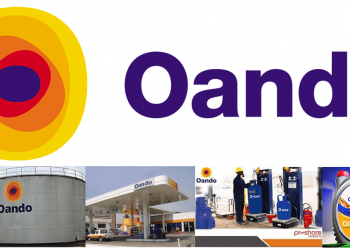- Digital health seen as key to achieving universal health coverage in Africa, says Debbie Rogers, CEO of South African digital health non-profit
- Technology offers chance to transform health systems across the continent, according to Africa CDC official-
- ‘We’re seeing remarkable innovation – from AI-powered health services to digital maternal health programs – built by African organizations for African contexts,’ says Rogers
KIGALI, Rwanda
From drones delivering blood in rural Rwanda to artificial intelligence tools predicting disease outbreaks, Africa’s health technology sector is entering a new phase – one that experts say could redefine how care is delivered across the continent.
That ambition took center stage last week in Kigali, where policymakers, innovators and public health officials gathered for the Africa Health Tech Summit to explore how digital tools could make health care more efficient, affordable and equitable.
Over three days, participants examined how emerging technologies – from AI and robotics to mobile health platforms – could support overstretched systems and reach communities often left behind by traditional care.
For Debbie Rogers, chief executive of Reach Digital Health, a South African non-profit using technology to close health gaps, the message from the conference was clear: digital health is no longer optional – it is the backbone of how countries will move toward universal health coverage.
“But technology alone is not enough,” she said. “The real transformation happens when we combine human insight, behavioral science and digital innovation, and do so together, and we put the right investment behind it.”
The summit reflected growing momentum behind digital health investment, driven by both necessity and opportunity.
Africa’s homegrown health-tech revolution
Across Africa, systemic challenges like geography and funding are forcing governments to look for new ways to deliver essential services. Technology, experts said, offers the chance to leapfrog traditional barriers – if it is adapted to local contexts.
Landry Tsague, director of the Center for Primary Healthcare at the Africa Centers for Disease Control and Prevention (Africa CDC), said countries must now go beyond “revitalizing” their health systems, and instead focus on “transforming” them.
“By leveraging digital innovation and political momentum, countries can align partners around one plan, one budget. If you do that, we are more likely to create systems that will bring our countries to universal health coverage by 2030,” he said during a panel discussion.
Participants noted that Africa is increasingly becoming a global hub for health innovation. Across the continent, startups and research teams are designing solutions tailored to local realities – from AI-powered diagnostic tools to digital maternal health programs and drone delivery networks reaching remote clinics.
“Across the continent, we’re seeing remarkable innovation … built by African organizations for African contexts,” said Rogers. “That’s what makes the future of health care here so exciting.”
The approach, she added, reflects a shift from importing solutions to building them locally.
“Some of the most creative, scalable and impactful digital health innovations are coming from right here in Africa,” she said. “We’re excited about that future, one where collaboration across governments, partners, innovators, and investors ensures that everyone, everywhere, has access to health care they can trust and love.”
What role can AI play?
AI has drawn particular attention for its potential to make care more personal and efficient.
In Africa, where health systems are often overstretched, Rogers said that AI can help identify risk earlier, personalize communication and optimize how limited resources are deployed.
“AI doesn’t replace the human touch, it strengthens it,” she said. “By automating routine tasks and helping to predict certain conditions, AI allows health workers and clinicians to focus their time where it matters most – on patient care and relationship-building.”
She added that digital platforms are helping overcome long-standing barriers such as distance and workforce availability.
“When you include AI for support, you move from simply providing information to truly engaging users, delivering resources that adapt to their context, behavior, health stage or risk profile,” she said. “This means we can design services with users, for users – building services people genuinely love and return to. That’s what drives real behavior change and better health outcomes.”
John Fairhurst of the Global Fund said that while AI can expand access, its success could be fueled by its ability to demonstrate efficiency and measurable results.
“AI and broader digital tools offer huge potential to reach the right people more efficiently,” he said, noting that this element is increasingly critical as development partners look to do more with each dollar spent.
What AI needs to succeed
Experts agreed that three factors are essential for digital health to succeed: trust, relevance and integration.
Trust requires that users know their data is secure and used responsibly. Relevance means technology must respond to real needs, not generic assumptions. Integration ensures that digital systems strengthen, rather than replace, public health workers.
In practice, experts said AI works best as a physician’s assistant – flagging risks, compiling patient data and providing timely insights that allow doctors to focus on diagnosis and care.
To ensure the solutions are human-centric from day one, Rogers said the services should be co-designed with people who will use the tools, including patients, nurses, counselors, and ministries.
Panelists also highlighted persistent barriers, including poor data quality, weak internet infrastructure and uneven access to training.
“Another challenge is ensuring equity, that AI benefits everyone, not just those already connected,” said Rogers. “We also need the right policies, infrastructure, and training to ensure health workers and citizens can confidently use digital tools.”
Speakers agreed that partnership will be key. When governments, private innovators and public health institutions work together, they said, Africa can unlock the full potential of artificial intelligence – safely, responsibly and for everyone.







